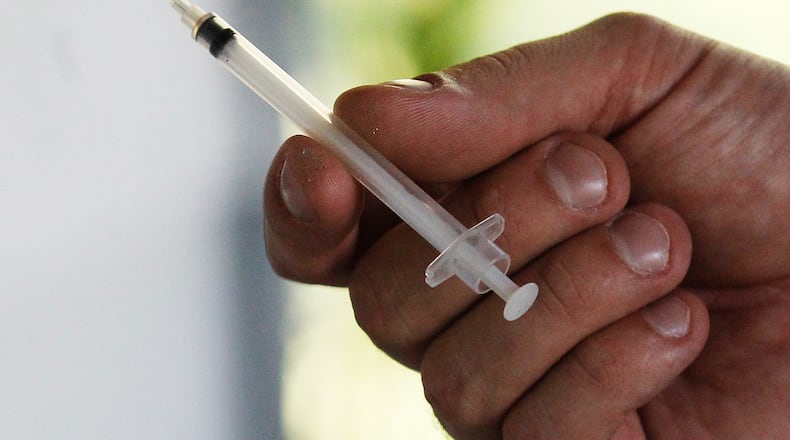Scott Rasmus, executive director of the county mental health and addiction services board, told Butler County commissioners during budget hearings Monday he has exhausted all other avenues for financing the board’s $3 million opioid plan.
“There is no easy solution, unless you increase levies locally,” he said. “(Any money) that comes typically through the federal government and the state is short term. It’s grant based, it’s for a year or two biennium and then it goes away. So how do you sustain these programs?”
MORE: Mental health and addiction board creates $3.6 million opioid business plan
Butler County Commissioner Don Dixon said local tax money is not the only answer.
“This can’t be funded locally solely by our taxpayers,” he told the Journal-News. “It can’t. The problem is too big and you can’t ask (Butler County residents) to continue to have our tax dollars sent to Columbus and Washington and they keep keeping more and sending less back and saying you have to fix this locally.”
Rasmus has not formally asked commissioners to put a 0.7 mill combined mental health and addiction services levy on the ballot next year, which would replace the current 0.5 mill mental health levy.
And the commissioners haven’t said how they will respond to the request.
Rasmus said, however, the hearing today did not deter him in any way.
“We want to take a little time now to consider all their feedback so that when we petition them for levy support in the near future we show we don’t take asking for new money lightly, we have exhausted other relevant options, and have good planning for how any additional funds will be used,” Rasmus said. “This includes saving lives, that treatment works people recovery from mental illness and addictions, and even identifying what cost savings there are to the community by implementing the levy.”
About the Author
